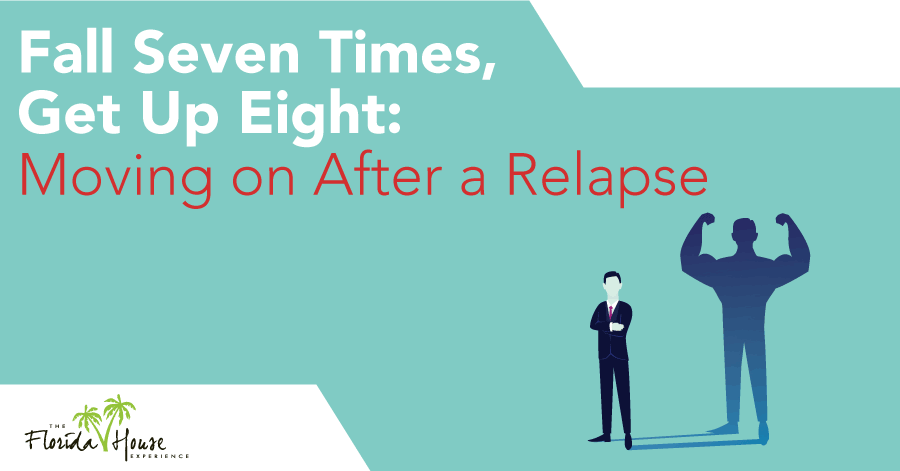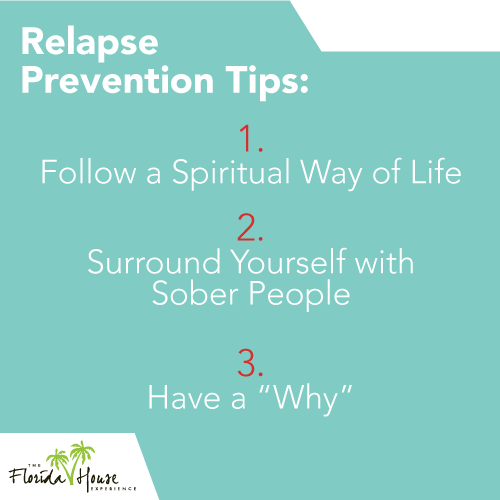
Relapse is typically a natural component of the journey through sobriety. This means that having a proper relapse prevention plan and corresponding skills for making it through if it happens are necessary to getting back on the right track.
Relapse Happens, Don’t Give Up
The process of getting sober is a simple one, but by no means easy. Relapse is a very real and very common part of the journey. While we wish no one had to do so, the majority of those dealing with alcohol and drug addiction tend to fall off the wagon at least once – but we truly hope that if you are one of those that you do come back. For this reason, having a relapse prevention plan and corresponding skills is important, as we’d rather you not have to relive your nightmare on an ongoing basis.
Relapse prevention comes in many different shapes and sizes. Different strategies work with different personalities, but the underlying commonalities are what we’d like to share here – those who tend to practice these consistently over time tend to remain sober successfully.
 Follow a Spiritual Way of Life – In our experience we have found that the vast majority of those who successfully remain sober for an extended period of time have incorporated a spiritual program into their relapse prevention plan. This looks like identifying a power greater than themselves through a higher power of their own understanding. This could mean following the tenants of Christianity, Catholicism, Judaism, Buddhism, Paganism and everything in between. For those suffering with alcoholism and addiction, these individuals tend to have lived a life primarily driven by self-will. Their best attempt at this life of self-will is what has led them to the position of pain and suffering they currently reside in with their addiction. For that reason, it has been found that trusting in something bigger than themselves to guide and direct their actions has shown to prove more successful than their own decision making. Whichever form of spirituality touches your soul greatest is the one to follow. Just because you were raised one way does not mean it is the way for you necessarily, and at this point in your journey, the decision for the practice that best serves to help in preventing a relapse is the one you should investigate. Whatever it is, we have found it to work successfully in most sober men and women and suggest giving it a chance for yourself.
Follow a Spiritual Way of Life – In our experience we have found that the vast majority of those who successfully remain sober for an extended period of time have incorporated a spiritual program into their relapse prevention plan. This looks like identifying a power greater than themselves through a higher power of their own understanding. This could mean following the tenants of Christianity, Catholicism, Judaism, Buddhism, Paganism and everything in between. For those suffering with alcoholism and addiction, these individuals tend to have lived a life primarily driven by self-will. Their best attempt at this life of self-will is what has led them to the position of pain and suffering they currently reside in with their addiction. For that reason, it has been found that trusting in something bigger than themselves to guide and direct their actions has shown to prove more successful than their own decision making. Whichever form of spirituality touches your soul greatest is the one to follow. Just because you were raised one way does not mean it is the way for you necessarily, and at this point in your journey, the decision for the practice that best serves to help in preventing a relapse is the one you should investigate. Whatever it is, we have found it to work successfully in most sober men and women and suggest giving it a chance for yourself.- Surround Yourself with Sober People –“We are who we surround ourselves with.” This famous line is one that has held true throughout the ages of time and equally applies to those in sobriety. A vital aspect of your relapse prevention plan should include remaining surrounded by others in sobriety as well. This does not mean that friends who can drink controllably should be excluded, however, it is important that you have plenty of people close to you that understand your journey and practice the same principles as you. It would be unwise to rekindle relationships with past friends actively living the lifestyle you are now trying to get away from as it would increase the chances of relapse. A great place to meet such people would be the rooms of sober fellowships including Alcoholics Anonymous (AA), Narcotics Anonymous (NA) and others. Those in the rooms tend to live a life of happy sobriety and practice the principles of a twelve-step program in all that they do. They tend to be more than willing to share their contact information with you and be supportive in times of need.
- Have a “Why” –As part of your relapse prevention plan, we would strongly encourage you to develop a “why” for staying sober. This could be for health reasons, pursuit of a specific goal, or simply for a better way of life. By incorporating a why into your relapse prevention plan it could come in handy when considering using again – it could provide the momentary pause for you to consider what you would be giving up in exchange for this temporary high. We have found that those with successful long-term sobriety primarily do it for themselves because they know if they can’t stay on the right track, they can’t be there for others, be it their spouse, children, friends, professional pursuits, etc. Though your “why” may not present itself to you initially, it will likely come as time goes on. As a sober life begins to take shape and you entrench yourself in various pursuits, you may begin to value tremendously those things that have now become a part of your life. “Why” would I want to throw all of this away now that things are better than they have ever been? “Why” go back to everything that provided so much misery before?
Whatever You Do, Don’t Give Up
Having a relapse prevention plan helps increase the likelihood of success. However, relapse may still happen for you. If you do relapse, one of the most difficult aspects of this set-back is a feeling of shame or embarrassment that discourages you to come back to the people that love and support you. If you should go out, know that you are always welcome back in. You will not be judged or cast out by your peers. You will not be looked down upon or shunned from trying again. If you stay out there, your chances of survival dwindle by the day. By coming back, you give yourself a chance at a better way of life filled with love, joy, and inconceivable happiness. You are in the game until you are not.
The top three common behaviors we have found in those who do remain sober are living a spiritual way of life, surrounding yourself with the right people, and having a “why” for remaining sober. Incorporating these three things into your relapse prevention program give you a fighter’s chance at success – it works, it really does. If you would like to learn more about developing a strong relapse prevention program, call Florida House today at (833) 596-3502.






